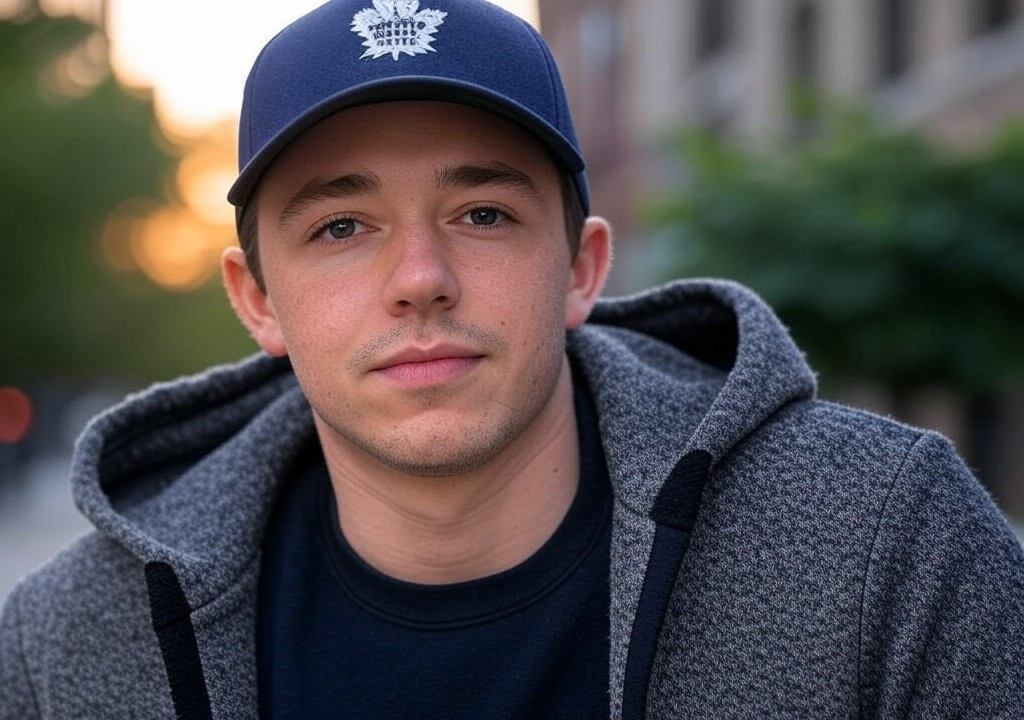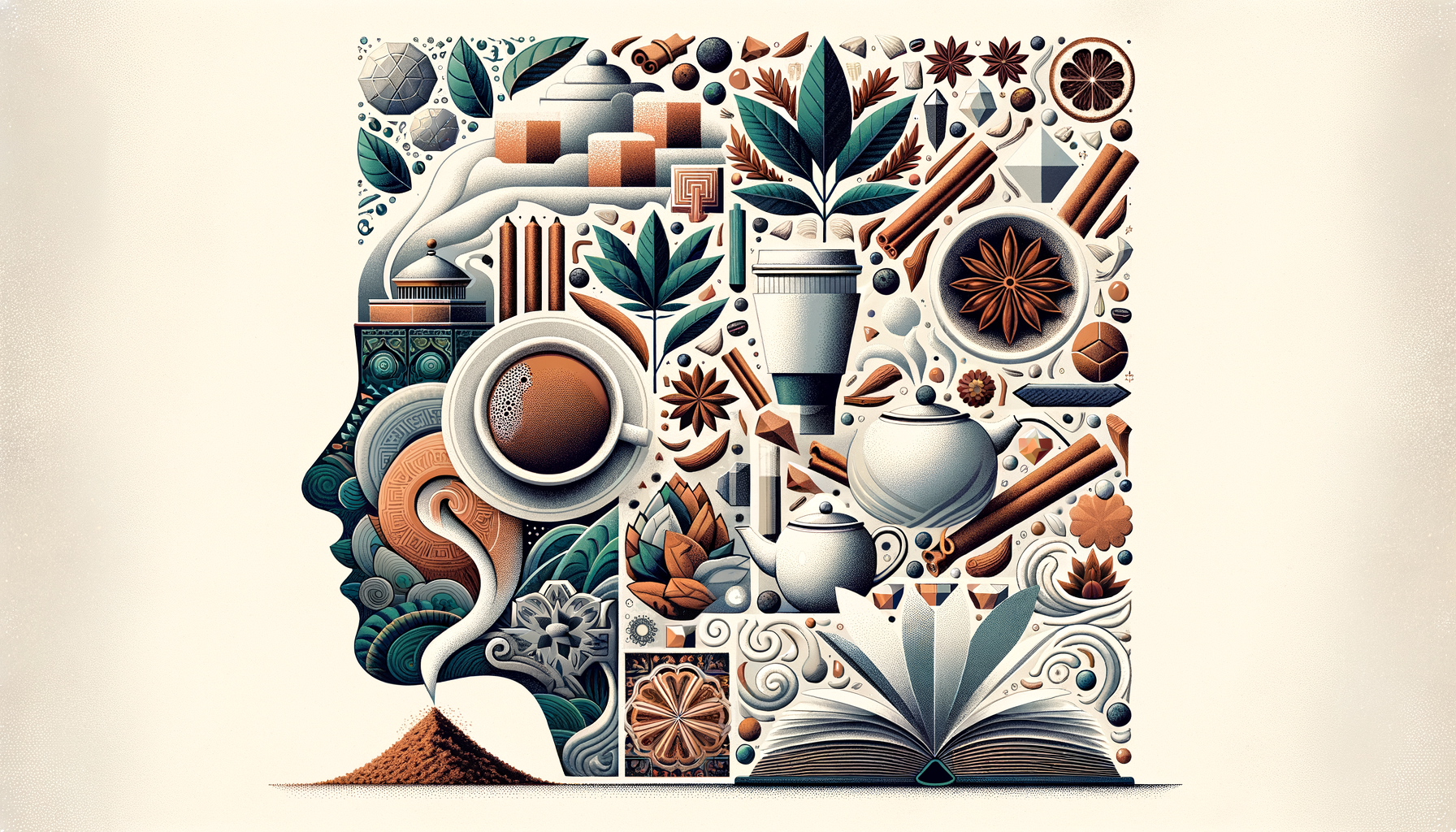The first time I felt seen was not during some grand cinematic moment where someone locked eyes with me across a crowded room or delivered a monologue that unpeeled the onion layers of my soul. No, it was over a cup of chai in a loud Toronto café, in the middle of winter, bundled up in the kind of puffer jacket that makes you look less like a romantic lead and more like a sentient sleeping bag. And yet, there it was: a moment that cracked me open, warm and unscripted.
The whole thing began—and almost didn’t happen—because I’d been guilt-tripped into attending a friend-of-a-friend’s art show. (Spoiler alert: teenage me would be shocked to find out just how much of adulthood runs on guilt-triggered RSVPs and awkward attendance.) The night before, scrolling Instagram, I’d nearly backed out, convincing myself I was “too busy.” But the truth was, I wasn’t busy—I was exhausted by small talk and couldn’t stomach another evening of explaining what I do for a living to people who assume “writer” means I pen Christmas movies for Hallmark.
Still, I dragged myself there and immediately felt vindicated in my doubts. The exhibit was in a drafty gallery space with concrete floors that could have doubled as a meat locker. The artwork was abstract and intimidating, the wine was orange for some reason, and the crowd buzzed with a coolness I was sure I didn’t possess. I was about two minutes away from ghosting out under the pretense of feeding a made-up cat when I noticed her—Leila.
The Unexpected Spark of Being Truly Seen
Leila wasn’t the kind of person who made a scene, but she had a way of drawing you in. She was laughing at someone’s joke, holding court without even trying. By some unspoken social miracle, we ended up introduced. Our “meet-cute,” if you could call it that, was standard-issue Toronto: we bonded over shared bitterness about the streetcar delays and a mutual love for Kensington Market on a summer afternoon.
But here’s where it got interesting: instead of gliding through surface-level pleasantries, as most first-time conversations go, she asked me—bluntly—if I’d always wanted to write. No filler. No hesitation. It wasn’t just the question; it was the way she delivered it, like she actually cared about the answer. I gave my usual spiel, about how growing up surrounded by books in Riverdale shaped my early love of storytelling, but I slipped in some half-truths, too. At the time, I was wrestling with doubts about my career, but admitting that felt too vulnerable.
Leila smiled so knowingly. “You’re not giving me the whole story,” she said, without judgment. Just curiosity.
And here’s the kicker: I told her. About everything. My imposter syndrome, about moving to London for that job I felt unqualified for, about how being the “creative one” in my family often felt more like a label than a superpower. I talked about how I sometimes envied my friends with conventional nine-to-fives, whose milestones were so neatly mapped out. I don’t know what possessed me to unload all this—it’s not like they serve an honesty serum with the weird orange wine.
But there was something about her presence. She listened the way few people do, with an intensity that stripped away the usual social defenses. She wasn’t nodding politely or waiting for her turn to speak; she was listening like she could already see the version of me I was fumbling to articulate.
What It Feels Like to Be "Truly Seen"
Pop culture loves moments of recognition. Think of the way Jerry Maguire looks at Dorothy and says, “You complete me,” or the notebook-drenched romance between Noah and Allie. But being seen isn’t about someone completing you or solving everything. It’s about someone witnessing you—flaws and all—and sticking around anyway.
In that moment with Leila, it felt like I’d handed her a knotted ball of yarn—the complicated mess of hopes, fears, and doubts—only for her to find the loose strand and unravel it effortlessly. It was vulnerable, sure, but strangely empowering too. For the first time in a long time, I felt like I wasn’t performing a version of myself I thought people would like.
When I reflected on it later, I realized why it shook me: so much of life is spent curating our “selves.” We do it on social media, on first dates, even with close friends. We share the highlight reel while keeping the outtakes locked away. And it’s not because we’re dishonest—it’s how we protect ourselves. But when someone gives you the space to open up without fear of judgment, it’s transformative.
Lessons in Authentic Connection
Now, before you call up your therapist and schedule a vulnerability crash course, it’s worth noting that this kind of connection doesn’t need to happen all the time. (Honestly, if it did, grocery store lineups and job interviews would be unbearably intense.) But recognizing these moments when they come—and leaning into them—can change the way we approach relationships. Here’s what I learned:
-
Ask Better Questions
We default to safe, predictable questions when meeting people. “What do you do?” “Where are you from?” They’re fine as opening acts, but if you want to foster real connection, go deeper. Try, “What’s something you’ve always dreamed of doing?” or “What’s your favorite thing about your job?” People light up when you ask questions that spark self-reflection. -
Embrace Awkwardness
Vulnerability is messy. But that’s its charm. Don’t be afraid of stumbling through your thoughts or sharing an unfinished idea. It’s in the raw, unscripted moments that the magic happens. -
Resist the Urge to “Fix”
When someone opens up to you, your job isn’t to solve their problems or offer advice unless they ask for it. Sometimes the most validating thing you can say is, “That sounds tough. Tell me more.” -
Focus on the Person, Not the Persona
We’ve all been guilty of filtering ourselves to fit someone else’s expectations, especially on dates. But being genuine often creates a deeper connection than showing your polished “best self.”
The Aftermath (And What Happened With Leila)
So, did this profound chat lead to a grand romance? Here’s where I break your rom-com hopefulness: we’re not together. Leila and I went on two dates after that night, but it became clear we were better at soul-baring than long-term compatibility. And you know what? That’s okay. Not every meaningful connection needs to culminate in a forever-after.
What stayed with me wasn’t the potential of what we could’ve been, but the lesson in being seen. It made me bolder in my other relationships, less afraid to ask for connection where I once might’ve settled for polite distance. And it’s why I encourage everyone to keep an open mind when it comes to these moments—they’re rarely where and when you expect them.
The next time you find yourself at an art gallery you didn’t want to go to or trapped in a conversation that feels deeper than the Mariana Trench, try leaning in. Ask the scary question. Answer the scary question. You might just end up surprising yourself—and feeling truly seen for the very first time.




















